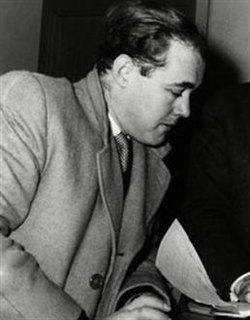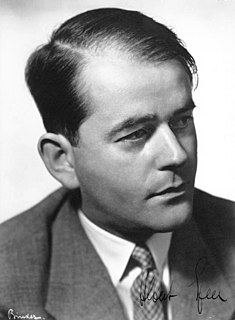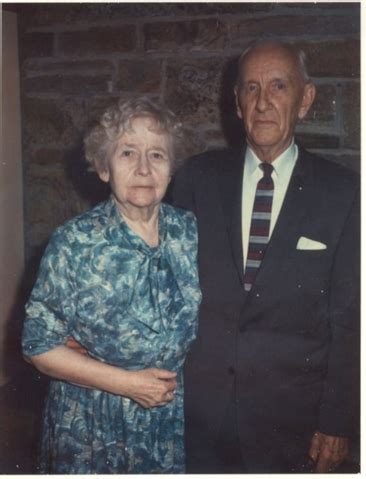A Quote by Hippocrates
But medicine has long had all its means to hand, and has discovered both a principle and a method, through which the discoveries made during a long period are many and excellent, while full discovery will be made, if the inquirer be competent, conduct his researches with knowledge of the discoveries already made, and make them his starting-point. But anyone who, casting aside and rejecting all these means, attempts to conduct research in any other way or after another fashion, and asserts that he has found out anything, is and has been victim of deception.
Quote Topics
After
Another
Any
Any Other Way
Anyone
Anything
Aside
Attempts
Been
Both
Casting
Competent
Conduct
Deception
Discovered
Discoveries
Discovery
Excellent
Fashion
Found
Full
Had
Hand
His
Knowledge
Long
Long Period
Made
Make
Many
Means
Medicine
Method
Other
Out
Period
Point
Principle
Rejecting
Research
Starting
Them
Through
Victim
Way
Which
While
Will
Related Quotes
It is notorious that the same discovery is frequently made simultaneously and quite independently, by different persons. Thus, to speak of only a few cases in late years, the discoveries of photography, of electric telegraphy, and of the planet Neptune through theoretical calculations, have all their rival claimants. It would seem, that discoveries are usually made when the time is ripe for them - that is to say, when the ideas from which they naturally flow are fermenting in the minds of many men.
...It would be possible to make much more progress than has been made if the NCI knew its job better, knew how to make discoveries...The NCI really does not know how to make discoveries....So long as the NCI is not willing to follow up ideas that seem good to people who have had experience making discoveries, the work of the NCI is going to be pedestrian.
A discovery must be, by definition, at variance with existing knowledge. During my lifetime, I made two. Both were rejected offhand by the popes of the field. Had I predicted these discoveries in my applications, and had those authorities been my judges, it is evident what their decisions would have been.
There's a great difference between knowing that a thing is so, and knowing how to use that knowledge for the good of mankind. Thetrouble with a scientist is we quickly tire of our discoveries. We hand them over to people who are not ready for them, while we go off again into the darkness of ignorance, searching for other discoveries, which will be mishandled in just the same way when the time comes.
People ... become so preoccupied with the means by which an end is achieved, as eventually to mistake it for the end. Just as money, which is a means of satisfying wants, comes to be regarded by a miser as the sole thing to be worked for, leaving the wants unsatisfied; so the conduct men have found preferable because most conducive to happiness, has come to be thought of as intrinsically preferable: not only to be made a proximate end (which it should be), but to be made an ultimate end, to the exclusion of the true ultimate end.
Hitler's dictatorship differed in one fundamental point from all its predecessors in history. His was the first dictatorship in the present period of technical development, a dictatorship which made complete use of all technical means for the domination of its own country. Through technical means like the radio and the loud-speaker, eighty million people were deprived of independent thought. It was thereby possible to subject them to the will of one man.
Blaise Pascal used to mark with charcoal the walls of his playroom, seeking a means of making a circle perfectly round and a triangle whose sides and angle were all equal. He discovered these things for himself and then began to seek the relationship which existed between them. He did not know any mathematical terms and so he made up his own. Using these names he made axioms and finally developed perfect demonstrations, until he had come to the thirty-second proposition of Euclid.
The intellectual part of religion is a private affair between every man and his Maker, and in which no third party has any right to interfere. The practical part consists in our doing good to each other. But since religion has been made into a trade, the practical part has been made to consist of ceremonies performed by men called priests ... By devices of this kind true religion has been banished, and such means have been found out to extract money, even from the pockets of the poor, instead of contributing to their relief.
The lapse of ages changes all things - time - language - the earth - the bounds of the sea - the stars of the sky, and everything 'about, around, and underneath' man, except man himself, who has always been and always will be, an unlucky rascal. The infinite variety of lives conduct but to death, and the infinity of wishes lead but to disappointment. All the discoveries which have yet been made have multiplied little but existence.
The man who is striving to solve a problem defined by existing knowledge and technique is not, however, just looking around. He knows what he wants to achieve, and he designs his instruments and directs his thoughts accordingly. Unanticipated novelty, the new discovery, can emerge only to the extent that his anticipations about nature and his instruments prove wrong... There is no other effective way in which discoveries might be generated.





































